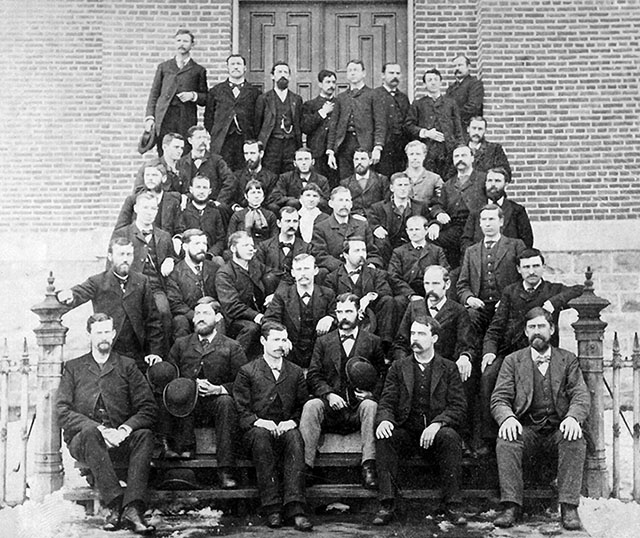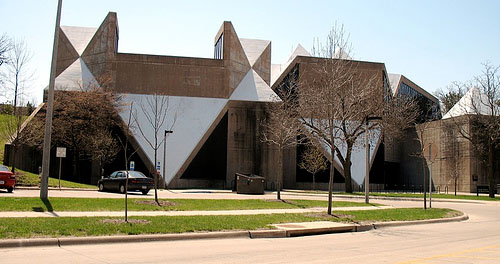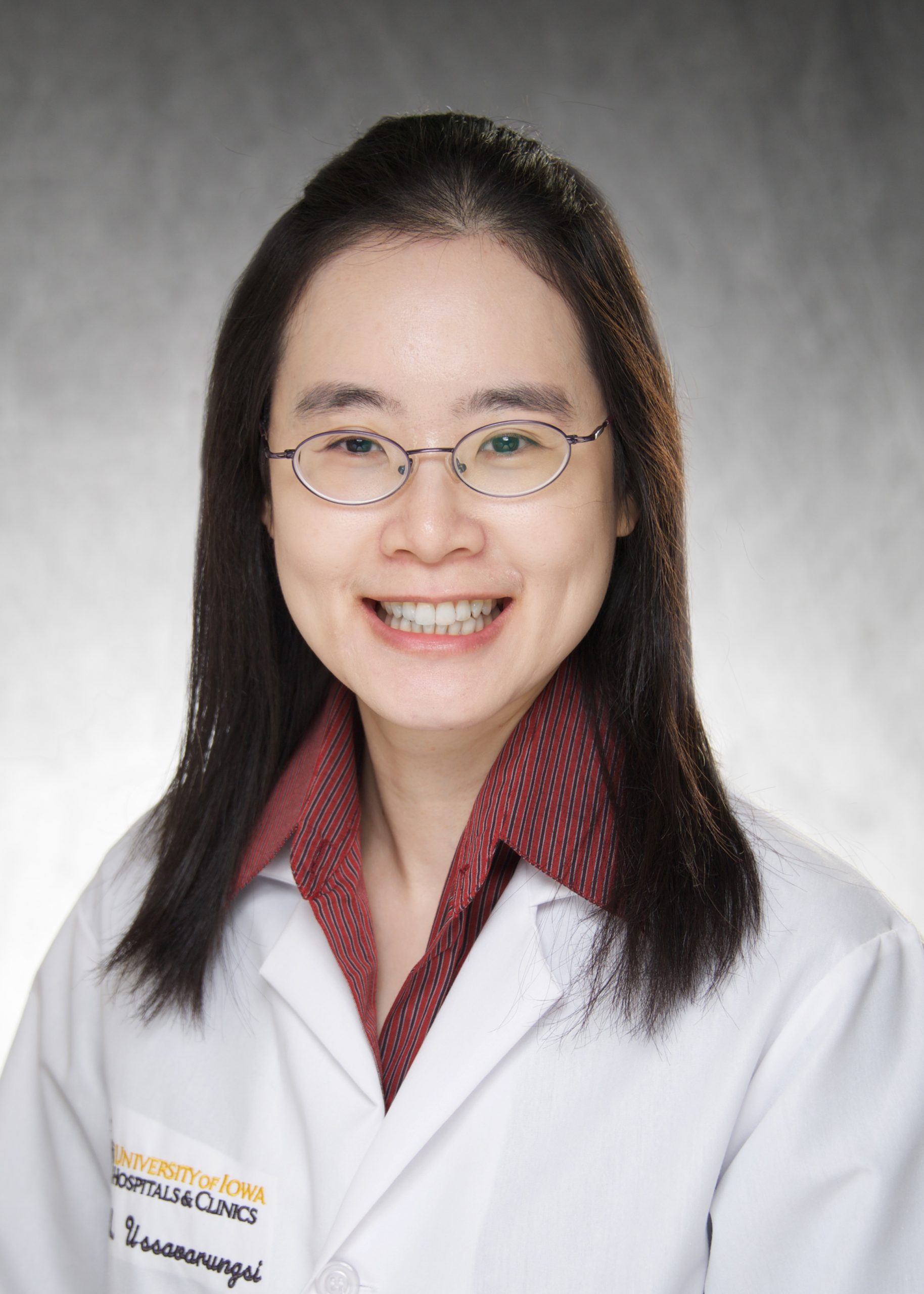How things change. Earlier this week, the Department held an informal ribbon-cutting (minus the ribbon) for the new Resident Resource Room and to thank Dr. Manish Suneja for his impressive direction of our world-class program. The pictures at the previous link were taken before the artwork was hung on the wall, but below you can see one of the pictures that our current Chief Residents obtained from the University’s Digital Archives and had printed and framed. All the walls of this new space are decorated with photographs from throughout the College of Medicine’s history. One only has to compare the faces in, say, this 19th-century class photo to the great diversity we see in our Residents today to understand the ways in which our institution has always adapted to the world around it. Those pictures remind us all that, although we should respect and honor the traditions that have allowed us to reach this moment, we should also be aware of the critical ways in which we will always need to grow.

One of the reasons our residency program is so successful is because we carefully manage our transitions in leadership from year to year. This July, we will introduce you to our rising Chief Residents, appointed to the role almost a year ago. These four have been preparing to assume the responsibilities of leadership for nearly twelve months now. Therefore, we must begin to prepare the next class of Chiefs, who will serve in the 2018-19 academic year. I was fortunate enough to participate in the interview process, and I was struck by the maturity, vision, and commitment of all the candidates. Each of them embodied thoughtfulness that finds the balance between guidance and teamwork, with innovative ideas for mentoring and supporting the aspirations and needs of their junior colleagues. I am confident that over the course of the next year, these four will tap into their already-existing strengths and hone new ones before they take the reins as our next Chiefs. Congratulations to our promising future leaders.

We all recognize that as physicians our education did not stop after residency or fellowship, and we must be life-long learners to ensure that we remain current and relevant. But we are busy and resources are sometimes limited. Some creative solutions to these needs continue to arise from our Hospitalist program under the leadership of Dr. Kevin Glenn. Most starting hospitalists have not had the opportunity for formal training in research methodology, but are motivated to leverage their clinical experiences into opportunities for scholarship. In an innovative program to remove some of the barriers to this work, nearly 12 hospitalists attended the first of two sessions on the methodology for conducting systematic reviews at the Hardin Library for the Health Sciences. The second session on conducting an effective literature review will take place in a couple more weeks. Congratulations and thanks to Associate Administrative Director Evelyn Perry and Clinical Education Librarian Heather Healy for organizing this introduction for our hospitalists.
Finally, oncology research and clinical trials at the University of Iowa continue to break new ground. I was impressed with the results that Dr. Yousef Zakharia presented at the most recent meeting of the American Association of Cancer Research in Washington, DC, and which garnered significant national interest. Though much remains to be studied, immunotherapy continues to represent one of the most promising of therapeutic strategies in the fight against cancer. Congratulations also to Dr. Varun Monga on his recent grant from the Rising Tide Foundation for Clinical Cancer Research. This three-year, $142,150 study will investigate the role of bisphosphonate therapy as upfront (neo-adjuvant) therapy in patients with a rare bone sarcoma that originates in cartilage. Dr. Monga reports that he and his team have already identified the fifteen patients who will be part of this trial. We wish them every success in this important work.

